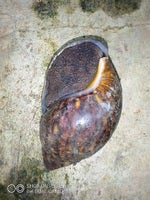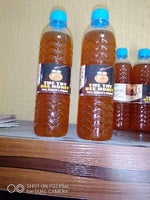Post by Ismail AbdulAzeez on Jul 16, 2013 3:25:21 GMT 1
Director-General, Raw Materials Research Council of Nigeria, RMRDC, Prof. Peter Onwualu, has stated that Nigerian fish sector has the capacity to earn over N200 billion revenue per annum, if the right policies and intervention are put in place.
Onwualu, who disclosed this at an entrepreneurial development workshop on fish smoking organised by the council in Abuja, lamented that Nigeria spent about N50 billion annually on importation of frozen fish. With this statistics, he said that Nigeria could boost its revenue earning from other alternative sources of income rather than depending on crude oil.
According to him, entrepreneurship was a vital tool for stimulating economic growth and employment opportunities. He noted that small businesses were the primary engines of job creation and poverty reduction, saying that fish farming as a thriving business in Nigeria could create thousands of jobs.
The RMRDC boss regretted that many fish farmers and those trading in it had refused to modernise the business to create the enabling environment for the small and medium scale enterprises (SMEs) in the country. He said the agency had embarked on enlightening Nigerians on how to package business plans.
In another development, The Central Bank of Nigeria (CBN) has expressed dismay over a whopping N11.7 billion spent annually to import processed tomato paste by the Nigerian government.
Speaking at a one-day stakeholders forum in Abuja on “Partnering to Build a Competitive Tomato Industry in Nigeria,” CBN Governor, Mallam Lamido Sanusi said such a colossal sum of money could be better used to grow the commodity locally, thereby helping to conserve scarce foreign exchange.
He blamed the wastage largely on the nation’s dysfunctional agricultural value chain system, as a result of which about 50 percent of tomatoes grown in the country were lost to poor preservation, poor marketing distribution and access to markets.
Sanusi, who was represented by the CBN Deputy Governor, Economic Policy, Dr. Sarah Alade said, “globally, Nigeria is the 14th largest producer of tomatoes and second only to Egypt in Africa at 1.51 million metric tonnes valued N87.0 billion with a cultivated area of 254,430 hectres.
“It is worrisome that as at today, Nigeria imports 65,809 tons of processed tomato paste valued at N11.7 billion annually. It is on this premise that the CBN intervened with programmes such as the N200 billion Commercial Agricultural Lending -NIRSAL to support the Federal Government’s Agricultural transformation Agenda–ATA.”
Source: sunnewsonline.com/new/specials/businessweek/nigeria-can-earn-n200bn-from-fish-farming-annually-onwualu/
Onwualu, who disclosed this at an entrepreneurial development workshop on fish smoking organised by the council in Abuja, lamented that Nigeria spent about N50 billion annually on importation of frozen fish. With this statistics, he said that Nigeria could boost its revenue earning from other alternative sources of income rather than depending on crude oil.
According to him, entrepreneurship was a vital tool for stimulating economic growth and employment opportunities. He noted that small businesses were the primary engines of job creation and poverty reduction, saying that fish farming as a thriving business in Nigeria could create thousands of jobs.
The RMRDC boss regretted that many fish farmers and those trading in it had refused to modernise the business to create the enabling environment for the small and medium scale enterprises (SMEs) in the country. He said the agency had embarked on enlightening Nigerians on how to package business plans.
In another development, The Central Bank of Nigeria (CBN) has expressed dismay over a whopping N11.7 billion spent annually to import processed tomato paste by the Nigerian government.
Speaking at a one-day stakeholders forum in Abuja on “Partnering to Build a Competitive Tomato Industry in Nigeria,” CBN Governor, Mallam Lamido Sanusi said such a colossal sum of money could be better used to grow the commodity locally, thereby helping to conserve scarce foreign exchange.
He blamed the wastage largely on the nation’s dysfunctional agricultural value chain system, as a result of which about 50 percent of tomatoes grown in the country were lost to poor preservation, poor marketing distribution and access to markets.
Sanusi, who was represented by the CBN Deputy Governor, Economic Policy, Dr. Sarah Alade said, “globally, Nigeria is the 14th largest producer of tomatoes and second only to Egypt in Africa at 1.51 million metric tonnes valued N87.0 billion with a cultivated area of 254,430 hectres.
“It is worrisome that as at today, Nigeria imports 65,809 tons of processed tomato paste valued at N11.7 billion annually. It is on this premise that the CBN intervened with programmes such as the N200 billion Commercial Agricultural Lending -NIRSAL to support the Federal Government’s Agricultural transformation Agenda–ATA.”
Source: sunnewsonline.com/new/specials/businessweek/nigeria-can-earn-n200bn-from-fish-farming-annually-onwualu/












